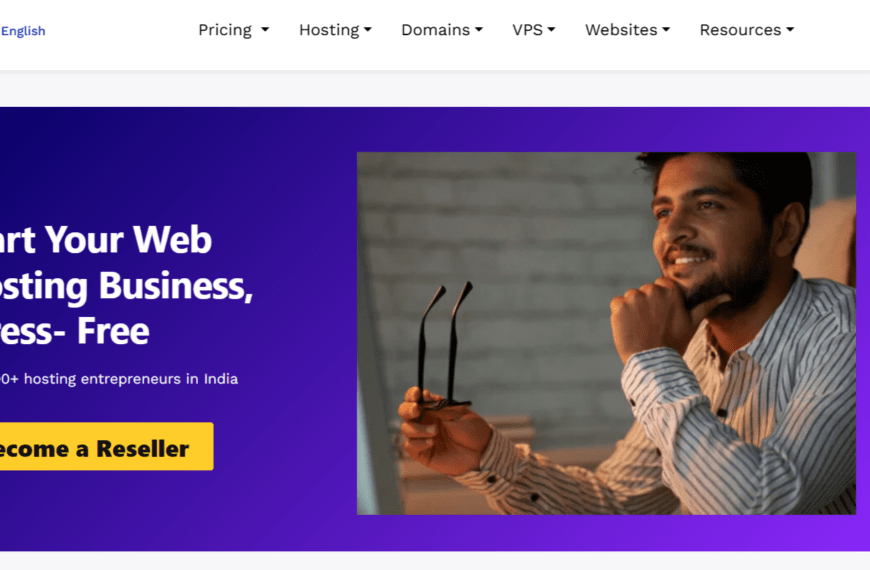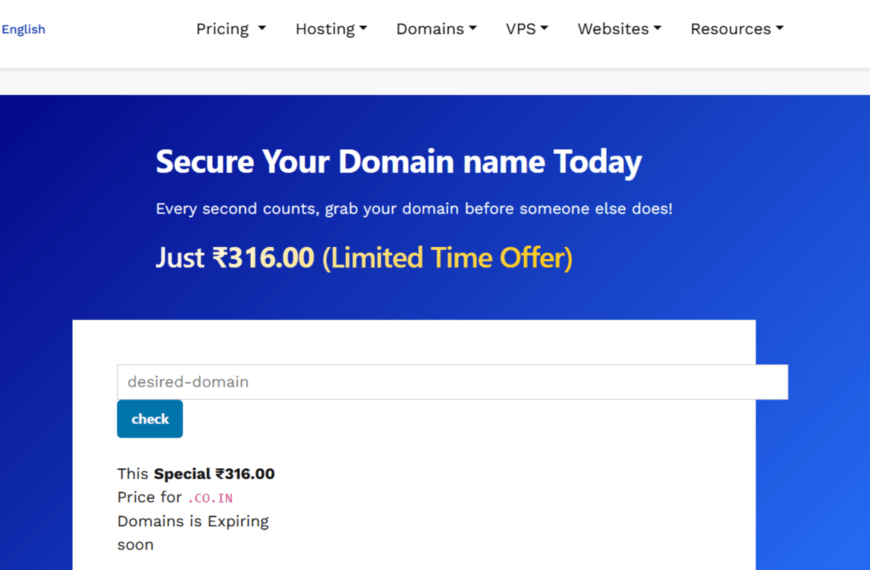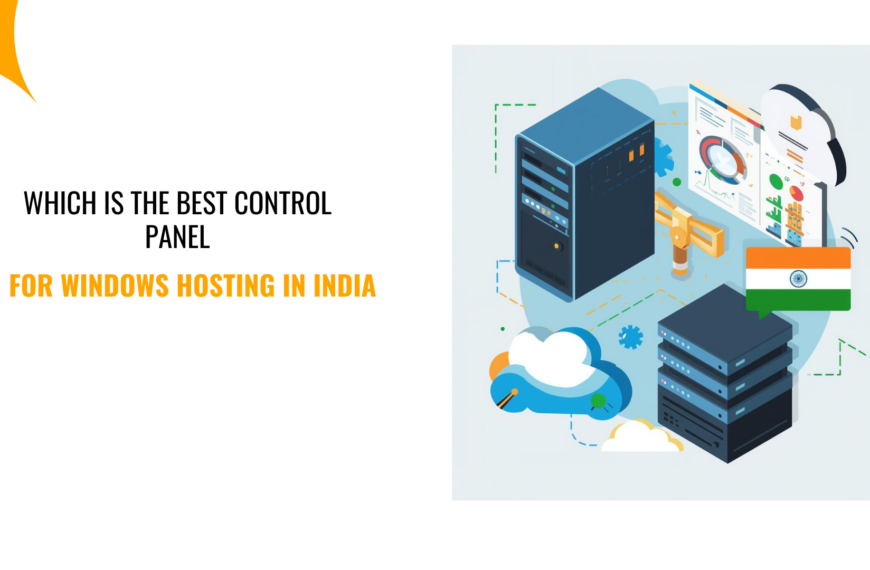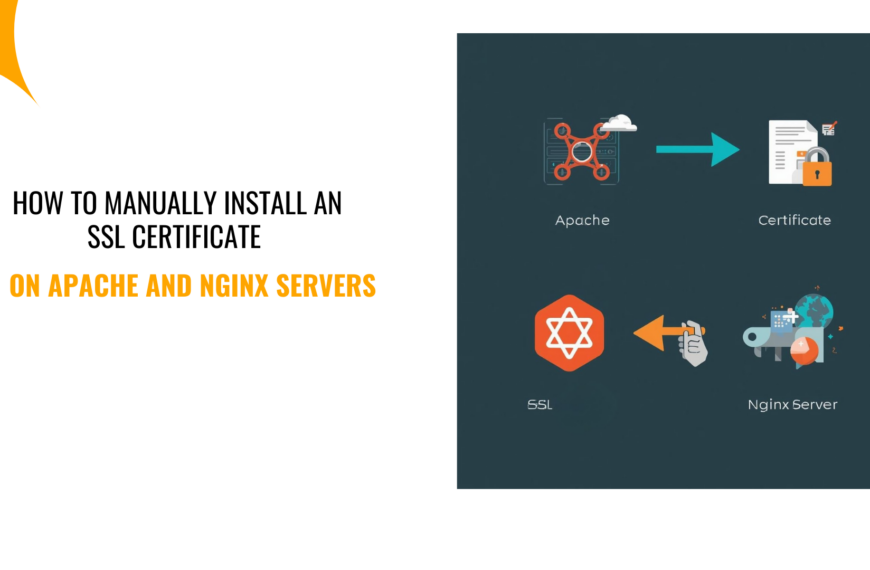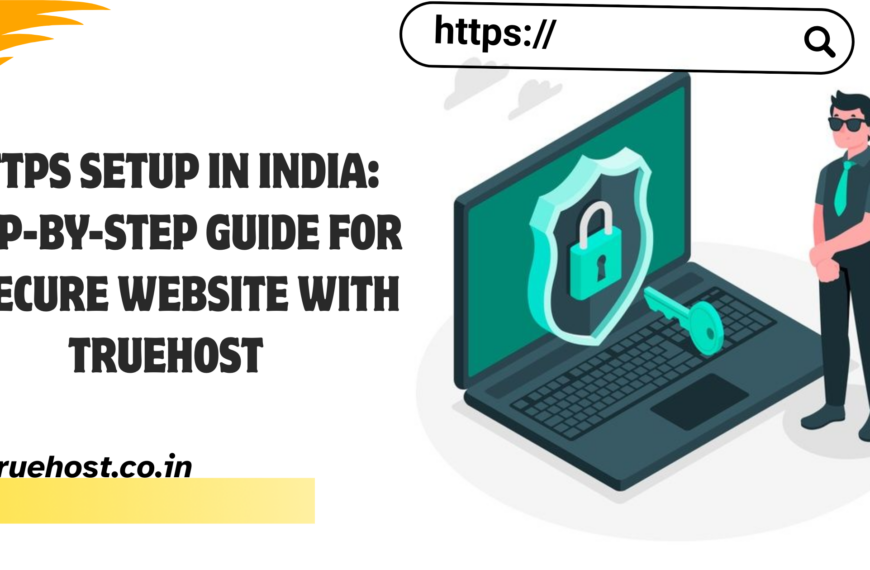When it comes to data protection, very few tools are as widely recognized as SSL (Secure Sockets Layer). If you have spent any time on the internet, you have probably noticed the little padlock icon in your browser’s address bar or the difference between http:// and https://. That extra “S” is thanks to SSL.
But despite being around for long, SSL and HTTPS remain among the most misunderstood parts of website security. Business owners, developers, and even some IT professionals still carry misconceptions about what SSL does, and what it doesn’t. These misunderstandings can leave websites exposed, create unnecessary costs, or cause site owners to underestimate the real importance of SSL.
Today, we are setting the record straight. In this post, we will debunk five common myths about SSL data encryption and explain why every serious website owner in India needs to have SSL as a cornerstone of their data protection strategy.
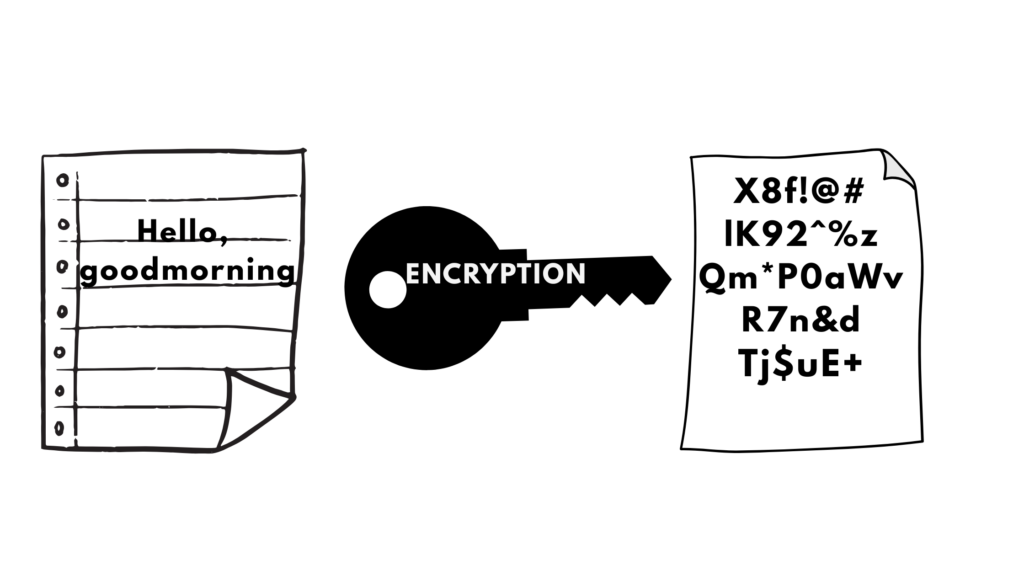
Myth 1: SSL Only Protects Payment Pages
This myth is surprisingly common. It all began because when SSL first gained popularity, it was closely associated with E-commerce. Website owners believed it was only necessary for protecting credit card details during checkout. This belief still lingers today, with some site owners limiting SSL to payment or checkout pages.
This is perhaps one of the most dangerous misconceptions. SSL ensures data encryption of all information exchanged between a user’s browser and your web server. This doesn’t just include payment information. It also covers:
- Login Credentials: Usernames and passwords entered on login forms. If intercepted unencrypted, attackers gain immediate access to user accounts.
- Personal Details: Names, email addresses, phone numbers, physical addresses submitted via contact forms, registration forms, or newsletter signups. This is pure gold for spammers and identity thieves.
- Form Submissions: Any information entered into any form like feedback, surveys, support requests could contain sensitive personal or business information.
- Session Cookies: These tiny files keep users logged in as they navigate your site. If stolen via an unencrypted connection, a technique called session hijacking, an attacker can impersonate the user entirely, accessing their account without needing the password.
- Private Messages and Chats: Content exchanged within user-to-user communication features.
If you only secure your payment page, the rest of your website is a wide-open door for cybercriminals. Attackers can intercept unprotected traffic, perform session hijacking, or steal login details.
With Truehost, you don’t have to choose which pages to protect. Their Always-On SSL automatically secures your entire site from top to bottom. No complicated configurations, no piecemeal protection.
This ensures end-to-end data encryption, giving your visitors confidence that every interaction on your site is private and secure.
Myth 2: SSL Is Expensive and Out of Reach
There is a common belief that SSL certificates are luxury items. Tools only big corporations with deep pockets can afford. Some site owners avoid SSL entirely, worried that certificates will cost more than their hosting plan.
This couldn’t be further from the truth. SSL certificates are available in a wide range of options:
- Free Certificates: Services like Let’s Encrypt, a non-profit Certificate Authority, have transformed the internet by offering completely free, automated Domain Validation (DV) SSL certificates. These verify you control the domain and provide the same level of encryption as paid certificates. They are perfect for blogs, personal websites, small businesses, and even startups. Major browsers trust them fully.
- Affordable Options (Organization Validation or Extended Validation): If you run a business, especially an e-commerce store, financial service, or any site handling highly sensitive data, you might want the extra trust signals of OV or EV certificates. These involve verifying your organization’s legal existence and physical address (OV) or undergoing a more rigorous vetting process (EV), resulting in the green address bar or company name display. While these have a cost, prices are far more competitive than a decade ago, starting from very reasonable annual fees.
- Hosting Bundles: Many reputable hosting providers like Truehost now include free DV SSL certificates, often powered by Let’s Encrypt, as standard with even their most basic shared hosting plans. Security is seen as fundamental, not an expensive add-on.
In other words, SSL isn’t out of reach. It is now a standard expectation for every website out there.
Myth 3: SSL Slows Down My Website
This myth comes from the early days of SSL when data encryption algorithms were less efficient. Many site owners worried that enabling SSL would increase latency and slow down their websites.
That might have been true 10-15 years ago, but it is not today. Modern advancements have virtually eliminated the performance penalty. Here is how:
Hardware Acceleration
Modern servers have specialized processors (CPUs) with instructions specifically designed to handle data encryption/decryption calculations incredibly efficiently.
TLS 1.3
The latest TLS protocol version is not only more secure but also significantly faster. It reduces the number of handshakes which is a technical time that refers to the initial negotiation between browser and server, required to establish a secure connection.
HTTP/2 and HTTP/3
These modern web protocols are designed to work optimally over HTTPS. In fact, HTTP/2 which requires HTTPS, introduces features like multiplexing which means sending multiple files simultaneously over one connection and header compression, which often make sites load faster than they did over old, unencrypted HTTP/1.1!
CDNs (Content Delivery Networks)
Most CDNs terminate SSL connections at their edge servers, that is, closest to the user, further reducing the load on your origin server and improving perceived speed globally.
Negligible Latency
Modern SSL data encryption barely slows things down. The extra work your server does takes just a tiny fraction of a second. So small that visitors will never notice. In fact, things like large images or a slow internet connection cause way more delays than SSL ever will.
Google itself even recommends SSL not only for security but also for performance. Plus, search engines reward HTTPS-enabled sites with better rankings, meaning SSL gives you an SEO boost.

Myth 4: SSL Means My Site Is Fully Secure
Seeing the padlock icon feels good. It looks secure. It is easy to fall into the trap of believing it is the only security measure you need.
SSL is very important, but it is just one critical layer in a comprehensive security strategy. Its sole function is data encryption while the data is moving between the user’s browser and your web server. It does not protect against:
- Server-Side Vulnerabilities: Outdated software like your CMS, plugins, themes, or server OS, misconfigurations, or unpatched security holes can be exploited by attackers to gain access to your server, even if the data was encrypted during transit.
- Malware: Malicious code injected into your website files can steal data, redirect users, or turn your site into an attack platform. SSL doesn’t scan for or prevent malware.
- Weak Passwords: Easily guessable admin or user passwords are a prime target. SSL doesn’t enforce password strength.
- Phishing Attacks: SSL encrypts the connection to the real site, but it doesn’t stop fake sites set up by phishers from also using SSL to look legitimate. Users still need to check the domain name carefully.
- Data at Rest: Once the encrypted data reaches your server and is stored in a database or file, SSL’s job is done. If that stored data isn’t encrypted or otherwise secured, it is vulnerable if the server is compromised.
The Padlock’s True Meaning
The padlock only signifies that the connection between the user and the server is private and encrypted. It does not guarantee that the server itself is secure, that the website is free of malware, or that the company operating it is legitimate.
Myth 5: SSL Encrypts My Stored Data Too: It’s Safe on the Server
This one sounds technical, but it is a really important distinction. Some people believe that SSL keeps data safe even after it is stored in your database or server.
This is a critical distinction. SSL data encryption only protects data during transmission. Once the encrypted data packet arrives at your web server and is processed e.g. by your application like WordPress, it is typically decrypted so the application can use it by either storing it in a database, processing an order, or logging a user in.
At this point, while residing in your database, log files, or backups, it becomes data at rest.
If an attacker gains access to your server through a vulnerability or stolen credentials, they can potentially access this stored data in plain text if no additional protections are in place.
Data breaches often involve the theft of unencrypted databases full of user information.
The Necessary Next Step
Protecting data at rest requires separate mechanisms:
- Database Encryption: Encrypting sensitive fields like passwords, stored using strong hashing algorithms like bcrypt, or even entire databases.
- File System Encryption: Encrypting directories or disks where sensitive files are stored.
- Application-Level Encryption: Encrypting data within the application before it is even written to the database.
- Secure Backup Encryption: Ensuring backups are also encrypted.
Why Busting These Myths Matters
You might be wondering: “Okay, but why does all this matter for me?” Great question. Here is why:
1) Visitor Trust
People today are cautious online. If they don’t see the padlock in the browser, many will leave instantly. SSL signals credibility.
2) SEO Benefits
Google openly rewards secure sites. With SSL, you are not just protecting data, you are improving your ranking potential.
3) Legal & Compliance Readiness
India and the world at large is moving toward stricter data protection laws. Data encryption helps you stay prepared and avoid penalties.
4) Conversions & Sales
When visitors trust you, they buy from you. Simple as that. SSL reassures them that their information is safe, which directly impacts your bottom line.
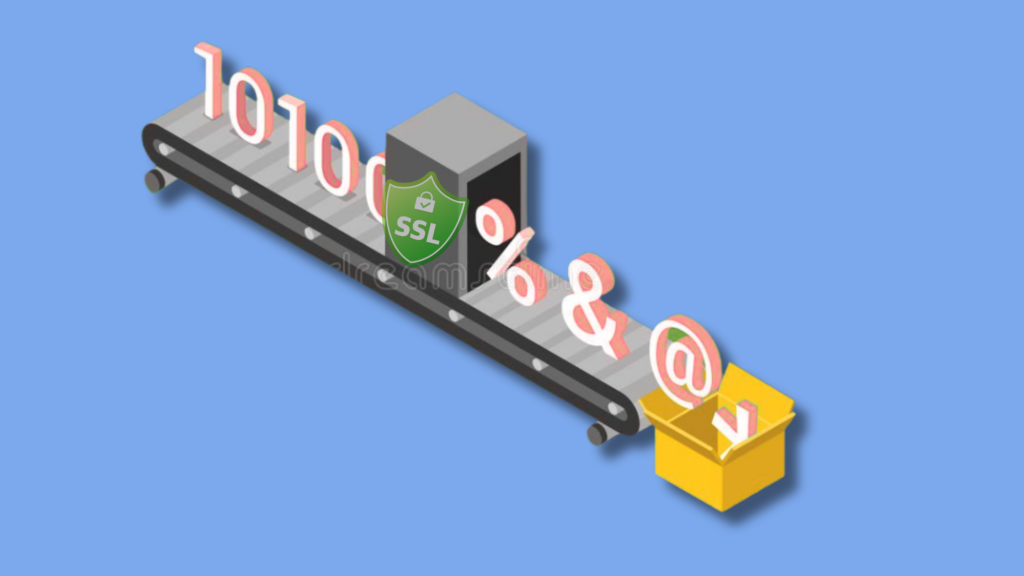
Final Thoughts
At the end of the day, SSL is about more than data encryption, it is about trust. Your visitors need to feel safe, search engines want to see HTTPS, and you need peace of mind knowing your data is shielded from prying eyes.
Your move: Does your site already have SSL? If not, what is holding you back? Drop your thoughts in the comments, I’d love to hear which myth surprised you most.
Ready to get your SSL and protect your website? Start here with Truehost!
 Web HostingBudget-friendly shared hosting plans
Web HostingBudget-friendly shared hosting plans Domains SearchFrom .com to unique country domains, explore and register extensions worldwide.
Domains SearchFrom .com to unique country domains, explore and register extensions worldwide. WordPress HostingPower your blog or business with WordPress hosting.
WordPress HostingPower your blog or business with WordPress hosting. Email HostingSimple, secure email hosting that helps you stay connected and professional.
Email HostingSimple, secure email hosting that helps you stay connected and professional. Reseller HostingStart your own hosting business with easy and reliable reseller hosting plans.
Reseller HostingStart your own hosting business with easy and reliable reseller hosting plans. AffiliateJoin our affiliate program and earn commissions every time you bring in new customers.
AffiliateJoin our affiliate program and earn commissions every time you bring in new customers. cPanel HostingHosting powered by cPanel, the world’s most user-friendly control panel.
cPanel HostingHosting powered by cPanel, the world’s most user-friendly control panel. Windows HostingBuilt for Windows applications and websites
Windows HostingBuilt for Windows applications and websites IN Domain PricesDon’t miss out on the best domain deals in India!
IN Domain PricesDon’t miss out on the best domain deals in India! WHOIS LookupFind out who owns a domain name with a quick and easy WHOIS search.
WHOIS LookupFind out who owns a domain name with a quick and easy WHOIS search. Domain TransferTransfer your domain to us and enjoy reliable support every step of the way.
Domain TransferTransfer your domain to us and enjoy reliable support every step of the way. .Com DomainGet the most trusted domain for worldwide credibility
.Com DomainGet the most trusted domain for worldwide credibility All TldsSearch and register domain extensions worldwide.
All TldsSearch and register domain extensions worldwide. Managed VPS HostingNot a tech expert? Choose our fully managed VPS service.
Managed VPS HostingNot a tech expert? Choose our fully managed VPS service. Dedicated ServersTake full power and total control of your own physical server.
Dedicated ServersTake full power and total control of your own physical server.
